There are a few differences between Adjustable and Fixed Rate Loans
If you are shopping for a mortgage or have questions, please call us at (512) 537-8000
Fixed Rate Loans
A fixed-rate mortgage is a type of loan in which the interest rate and monthly payment remain the same over the life of your mortgage; property taxes and homeowners insurance premiums may increase over time. The first few years of payments on a fixed-rate loan are applied primarily to pay interest. The amount paid toward principal goes up slowly each month.
If you have a fixed-rate loan, your interest rate won't change. On the other hand, if you have an Adjustable Rate Mortgage (ARM) and indices go up, your monthly payments will increase. If you are considering refinancing, call the Cody Reid Team, OriginPoint LLC (except CA) at (512) 537-8000 for details.
Adjustable Rate Mortgage
There are many different types of interest rates. Interest rates for adjustable rate mortgages, for example, are often determined by a federal index. Some examples of outside indexes include: the 6-month CD rate, the 1 year treasury securities rate, or the current and common index of Secured Overnight Financing Rate (SOFR), or others. Most adjustable-rate mortgages have rate caps, so your interest rate won't go up more than a specified amount in one period.
Adjustable Rate Mortgages (ARMs) are loans with interest rates that can change. ARMs usually start out with a lower interest rate, but at some point the rate will likely go up. ARMs are best for people who plan to move within the next couple of years, an adjustable rate mortgage can be a good option.
We're Here to Help!
We will get back to you as soon as possible.
Please try again later.
Want more information?

NMLS License #2185899 – For licensing information, go to: www.nmlsconsumeraccess.org.
1800 W. Larchmont Avenue, Suite 305, Chicago, IL 60613, 855-997-6468
Cody Reid NMLS ID: 218862; AZ - 1016196, CA - CA-DBO218862, CO - 100513692, CT - LO-218862, FL -LO67686, GA - 42575, KS - LO.0043213, MA - MLO218862, MD - 218862, ME - Licensed, NC - I-194369, NH - Licensed, NJ - Licensed, OH - MLO-OH.218862, IL - 031.0064799, IN - 49166, PA - 81115, SC - MLO -218862, TN - 212790, TX - Licensed, MI - 218862, MN - MN-MLO-218862, VA - MLO-218862VA, WA -MLO-218862, WI - 218862, WY - 103722, OK - MLO10073, OR – Licensed
Hours of Operation:
Monday-Friday
9:00 a.m. to 5:00 p.m.
Applicant subject to credit and underwriting approval. Not all applicants will be approved for financing.
Receipt of application does not represent an approval for financing or interest rate guarantee.
Restrictions may apply, contact OriginPoint for current rates and for more information. https://people.originpoint.com/cody-reid-218862
Operating in the state of California as OriginPoint Mortgage LLC in lieu of the legal name OriginPoint LLC.
If you are a California resident, please review our Privacy Policy to learn more about the categories and business purpose of personal information we may collect and your right to opt-out from the sale of personal information.
Cody Reid Team, OriginPoint LLC Website Powered by Southern Web Service
